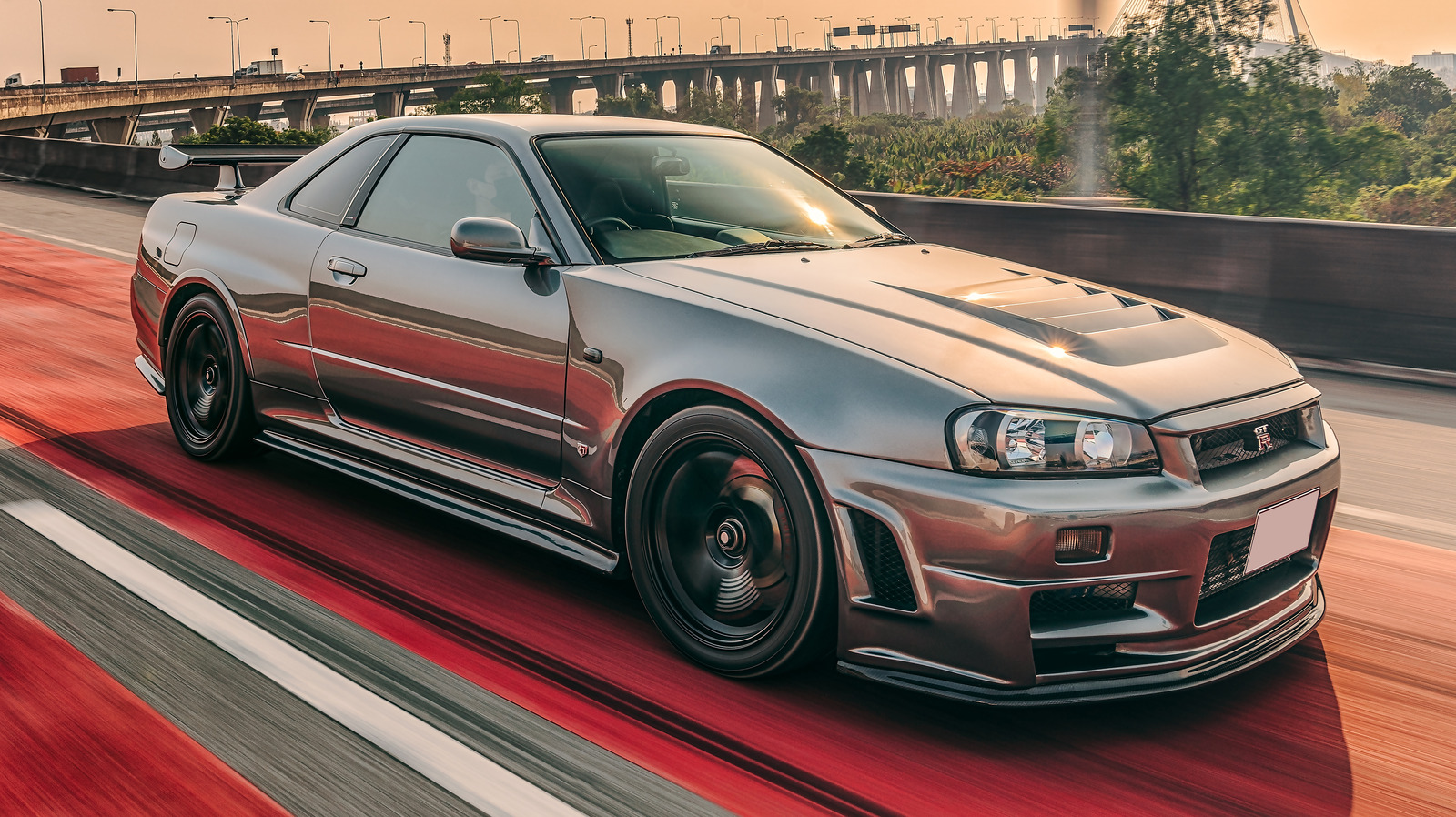Nissan Sport Cars: A Legacy of Performance, Style, and Innovation

Introduction: Why Nissan Sport Cars Have Always Stood Out
When you think of Nissan Sport Cars, certain brands immediately pop into your head—Ferrari, Porsche, Lamborghini. But for car enthusiasts who appreciate a balance of affordability, performance, and heritage, Nissan sport cars hold a very special place. Nissan has consistently delivered vehicles that prove you don’t need to spend a fortune to enjoy speed, power, and sharp handling. From legendary classics like the Skyline GT-R to modern icons like the Nissan Z, the brand has carved out a legacy that appeals to both casual drivers and hardcore car fans.
What makes Nissan stand out in the world of sport cars is its philosophy of blending everyday usability with raw performance. Unlike many exotic brands, Nissan understands that a sport car doesn’t have to be impractical or unattainable. Their cars are often priced more reasonably, yet they still offer the thrill that gets your heart racing the moment you touch the accelerator.
In this article, we’ll dive deep into the history, performance, and future of Nissan sport cars. Whether you’re a die-hard JDM (Japanese Domestic Market) fan or someone curious about what makes Nissan so special, this guide will help you see why Nissan remains a powerhouse in the sport car scene.
The Early Days: Building Nissan’s Sport Car Heritage
Nissan didn’t just jump into the sport car market overnight. The roots of Nissan sport cars trace back to the 1960s and 70s, a time when Japan was starting to show the world that it could produce cars that rivaled European performance models. One of the first game-changers was the Datsun 240Z, released in 1969. This car became an instant hit because it offered sleek design, reliability, and performance at a fraction of the cost of a Porsche or Jaguar.
The 240Z wasn’t just about looks. It had a strong inline-six engine and balanced handling that gave drivers confidence on winding roads. For many enthusiasts, the 240Z became their entry point into the world of sport cars. It essentially democratized performance, making it accessible to a wider audience. That philosophy—bringing performance to the people—still drives Nissan’s sport car lineup today.
Another important chapter in Nissan’s early sport car history was the development of the Skyline GT-R. Originally a sedan tuned for racing, it eventually transformed into one of the most respected sport cars in history. The Skyline GT-R earned the nickname “Godzilla” in the automotive world because of how it dominated race tracks and street culture alike. Its combination of advanced technology, turbocharged engines, and all-wheel drive set new standards for what a Japanese sport car could be.
The Nissan Z Series: A Car for the Driver’s Soul

If there’s one name that defines Nissan sport cars for enthusiasts, it’s the Nissan Z series. The Z cars have been around for more than 50 years, and each generation has managed to capture the spirit of driving excitement in its own unique way. From the 240Z in the late 60s to the modern-day Nissan Z (2023 model), this lineup has consistently delivered performance without losing its identity.
The Z cars are beloved for their balance of affordability and pure driving fun. While competitors like Porsche offer higher prestige, Z cars give you the same rush of adrenaline without emptying your bank account. Each generation improved on the previous one, offering sharper handling, stronger engines, and bolder designs. The 300ZX of the 90s, for example, became an icon thanks to its twin-turbocharged engine and futuristic looks.
Today, the latest Nissan Z continues that legacy with a retro-inspired design that pays homage to its heritage while packing modern performance. Equipped with a twin-turbo V6 and a manual transmission option, it appeals to purists who believe that sport cars should connect the driver directly to the road. This combination of nostalgia and innovation is exactly why the Z remains one of Nissan’s most important sport car lines.
The Skyline GT-R and GT-R: Nissan’s Global Supercar Icons
While the Z series appeals to the everyday sport car enthusiast, the GT-R is where Nissan flexes its true engineering muscle. Originally launched as the Skyline GT-R in the late 1960s, this car’s reputation skyrocketed in the 80s and 90s with models like the R32, R33, and R34. These versions became legendary in motorsports and pop culture, especially thanks to movies like The Fast and the Furious.
What sets the GT-R apart is its advanced technology. Long before other carmakers started using sophisticated all-wheel drive systems and computer-assisted handling, Nissan was already pioneering these features in the GT-R. This gave the car a reputation for being nearly unbeatable on the track. The R32 GT-R, for instance, dominated Japanese touring car championships, cementing its status as a true legend.
In 2007, Nissan introduced the R35 GT-R, dropping the “Skyline” name and presenting it as a global supercar. With a hand-built twin-turbo V6, cutting-edge all-wheel drive, and blistering acceleration, the GT-R could compete with Ferraris and Lamborghinis at half the price. Even after more than a decade on the market, the R35 still commands respect because of its ability to deliver supercar performance with Japanese reliability.
Everyday Usability: Why Nissan Sport Cars Appeal Beyond Enthusiasts
One of the things that sets Nissan apart from other sport car makers is practicality. Sure, Nissan sport cars are fast and exciting, but they’re also surprisingly usable in day-to-day life. Unlike some exotic cars that can only be enjoyed on weekends, many Nissan models are comfortable and reliable enough to serve as daily drivers.
Take the Z cars, for example. They may not have the cargo space of an SUV, but they’re comfortable enough for commuting and reliable enough that you don’t have to worry about constant repairs. The GT-R, despite its insane performance, also offers a level of refinement that allows owners to use it beyond just the racetrack. This balance of performance and livability is one reason Nissan has such a loyal fan base.
This practicality also extends to maintenance and affordability. While maintaining a Ferrari might cost a fortune, Nissan sport cars are generally more cost-effective to own. Parts are more accessible, and servicing is less complicated. That doesn’t just make Nissan cars appealing to hardcore gearheads—it opens the door for everyday people to experience the thrill of driving a real performance machine.
Nissan Sport Cars in Pop Culture and Motorsports
Nissan sport cars have a strong presence in pop culture, which has helped build their global fan base. Movies, video games, and motorsports have all contributed to making cars like the Skyline GT-R and 350Z household names. Titles like Gran Turismo and Need for Speed introduced generations of gamers to the thrill of Nissan’s high-performance lineup.
In motorsports, Nissan has also made a lasting mark. From dominating Japanese touring car championships with the Skyline GT-R to participating in endurance races like Le Mans, the brand has proven that its sport cars are more than just flashy street machines. This racing pedigree reinforces Nissan’s reputation for building cars that perform under pressure.
Pop culture exposure has also made Nissan sport cars aspirational. For many young enthusiasts, their first dream car isn’t a Ferrari—it’s a Skyline GT-R or a 350Z they saw in a movie or video game. This cultural relevance ensures that Nissan continues to inspire new generations of car lovers worldwide.
The Future of Nissan Sport Cars: Blending Tradition with Innovation
Like every automaker, Nissan faces the challenge of transitioning into a more sustainable future. But the company has been clear that sport cars will remain a part of its identity. The latest Nissan Z shows that the brand isn’t abandoning traditional performance. At the same time, Nissan is exploring electrification and hybrid technology, which could redefine what a sport car means in the coming decades.
There’s already speculation about a potential electric GT-R or Z model in the future. While purists may feel skeptical, the reality is that performance cars are evolving, and Nissan has always been at the forefront of blending technology with driving excitement. If anyone can make an electric sport car exciting, it’s Nissan.
Ultimately, the future of Nissan sport cars will likely be about balancing heritage with modern demands. Whether through turbocharged engines, hybrid systems, or fully electric powertrains, one thing is clear: Nissan will continue to deliver cars that ignite passion in drivers around the world.
Conclusion: Why Nissan Sport Cars Will Always Have a Special Place
Nissan sport cars aren’t just machines; they’re symbols of what happens when innovation meets passion. From the humble beginnings of the Datsun 240Z to the high-tech dominance of the GT-R, Nissan has built a lineup that resonates with drivers on every level. They’re affordable enough for everyday enthusiasts, powerful enough for serious performance seekers, and iconic enough to inspire pop culture legends.
The brand’s ability to balance performance, practicality, and innovation makes it unique in the sport car world. While other brands chase exclusivity, Nissan remains committed to making performance accessible to more people. That’s a philosophy worth celebrating.
So whether you’re a fan of the classic Z, an admirer of the legendary GT-R, or just someone curious about what makes Nissan sport cars so special, one thing is certain: Nissan will always have a spot in the history books of automotive performance.



